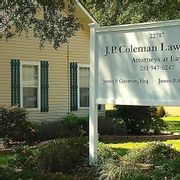
After an individual passes away, their estate must go through an administrative legal process called probate. Probate laws are complex, and the proceedings are often lengthy and more than a little confusing for the individual's surviving loved ones. To help combat some of this confusion, below are answers to the more frequently asked questions about probate.
FAQs About Probate Law
What Is Probate?
Probate has five main purposes. First, it affirms that the deceased's will is legally valid. Second, it compiles an inventory of all property owned by the deceased. Third, it ensures the property is appraised. Fourth, it oversees the payment of any outstanding debts the estate might have. And finally, it disperses the remaining property according to the terms of the will or, if there was no will, to the inheritance regulations of state intestacy laws.
How Does the Probate Process Start?
Naming an executor to manage the legal affairs of the estate is a key part of any will. After the decedent has died, the executor they have named will file the appropriate paperwork with local probate courts. If the decedent left no will, a probate judge will name an executor. This starts in motion the five-step process outlined above.
What Is the Role of an Executor?
 Consider the executor the personal representative of the deceased. The executor is the one who will submit the will to the courts, take comprehensive inventories of everything owned by the deceased, and obtain the necessary appraisals. They will also notify both creditors and heirs of the death.
Consider the executor the personal representative of the deceased. The executor is the one who will submit the will to the courts, take comprehensive inventories of everything owned by the deceased, and obtain the necessary appraisals. They will also notify both creditors and heirs of the death.
Does All Property Have to Go Through Probate?
Most states have a specific value threshold that must be met to qualify for probate. If the total value of the estate does not meet that threshold, property can usually avert the probate process; these estates are called small estates. Alabama probate laws set the small estate limit at $28,417. Also, property that is owned in a living trust does not have to go through probate and can pass directly to the beneficiary named in the trust.
James Parrish Coleman Attorneys at Law represents the Robertsdale, AL, area in probate and estate planning matters, as well as civil litigation, criminal defense, and family law issues. They are committed to helping you understand probate laws and will serve as your guide through every step. Call (251) 947-6247 to schedule a consultation, and visit their website for more information on how they will help you.
About the Business
Have a question? Ask the experts!
Send your question

